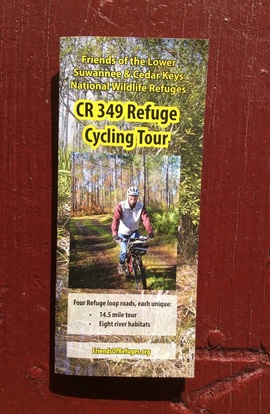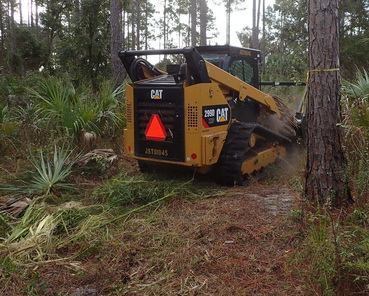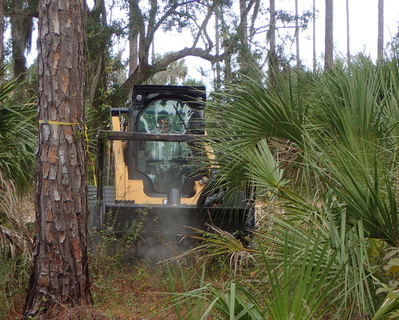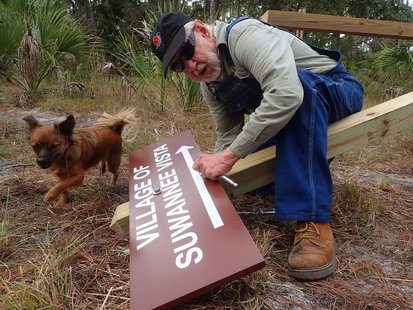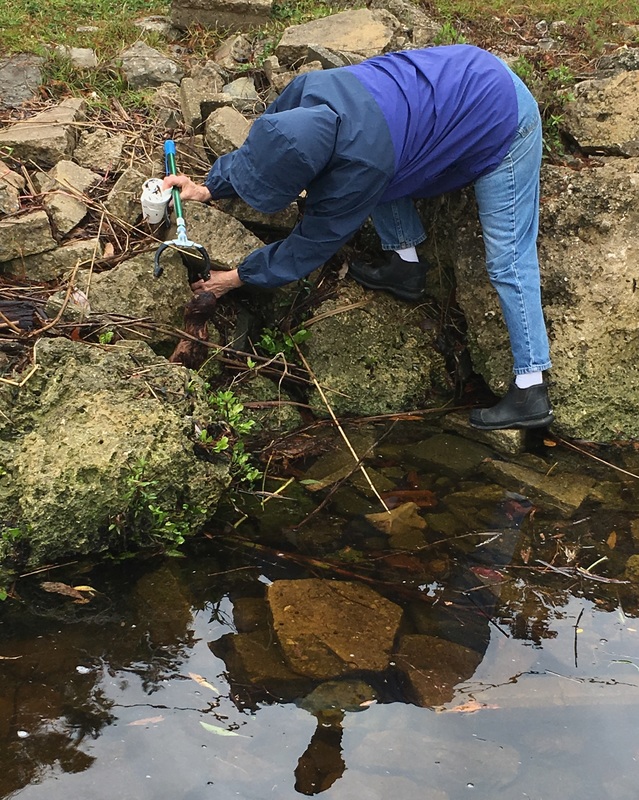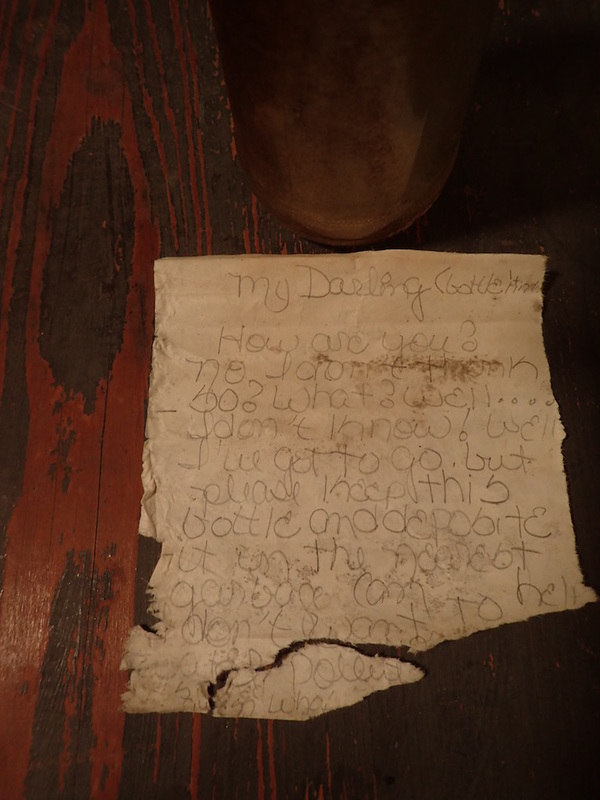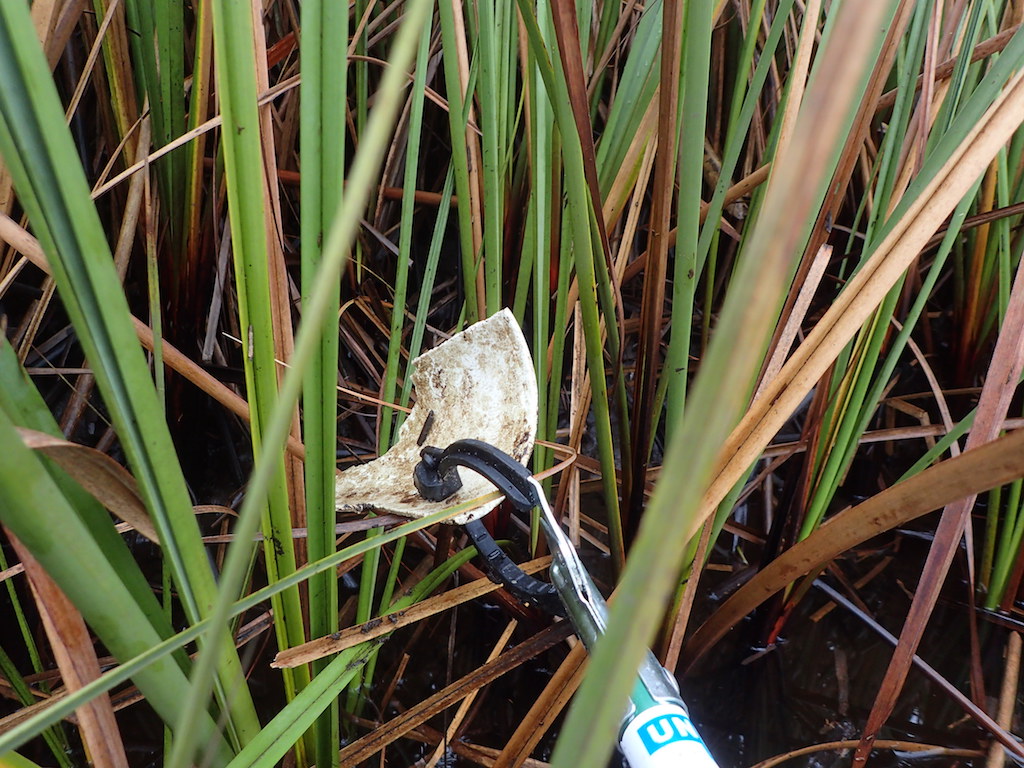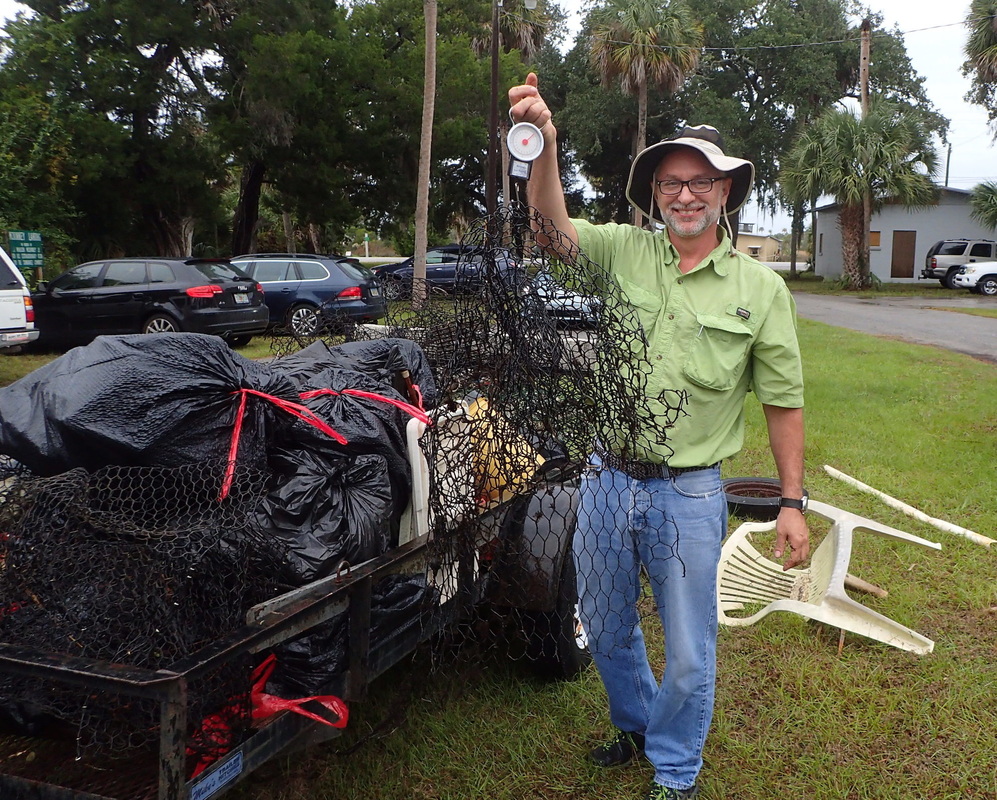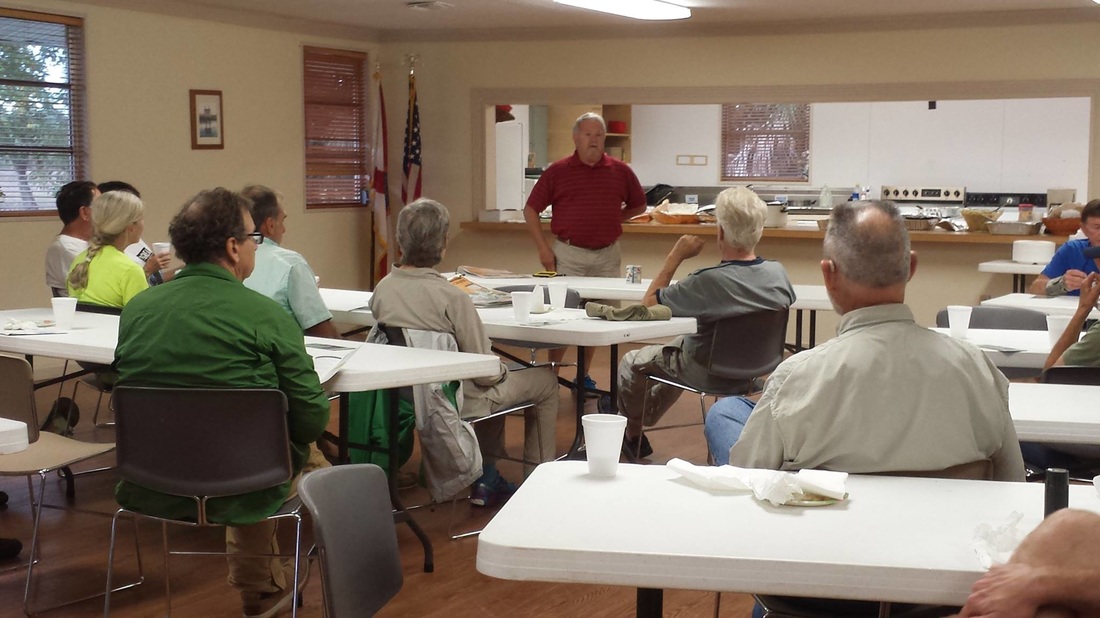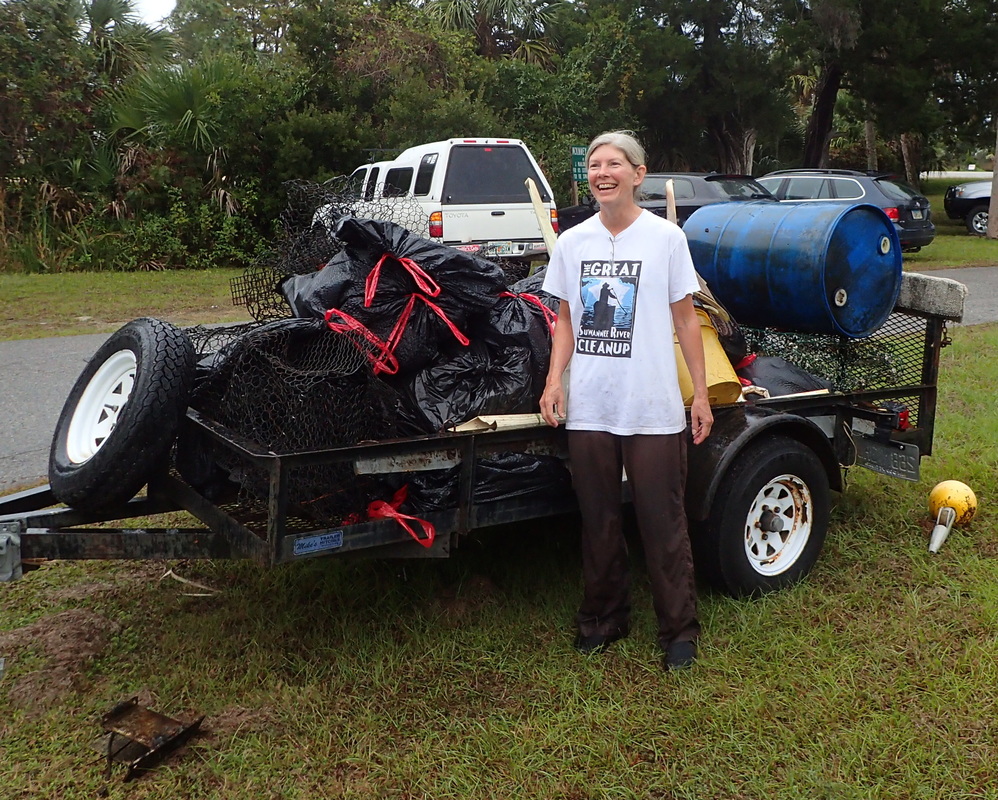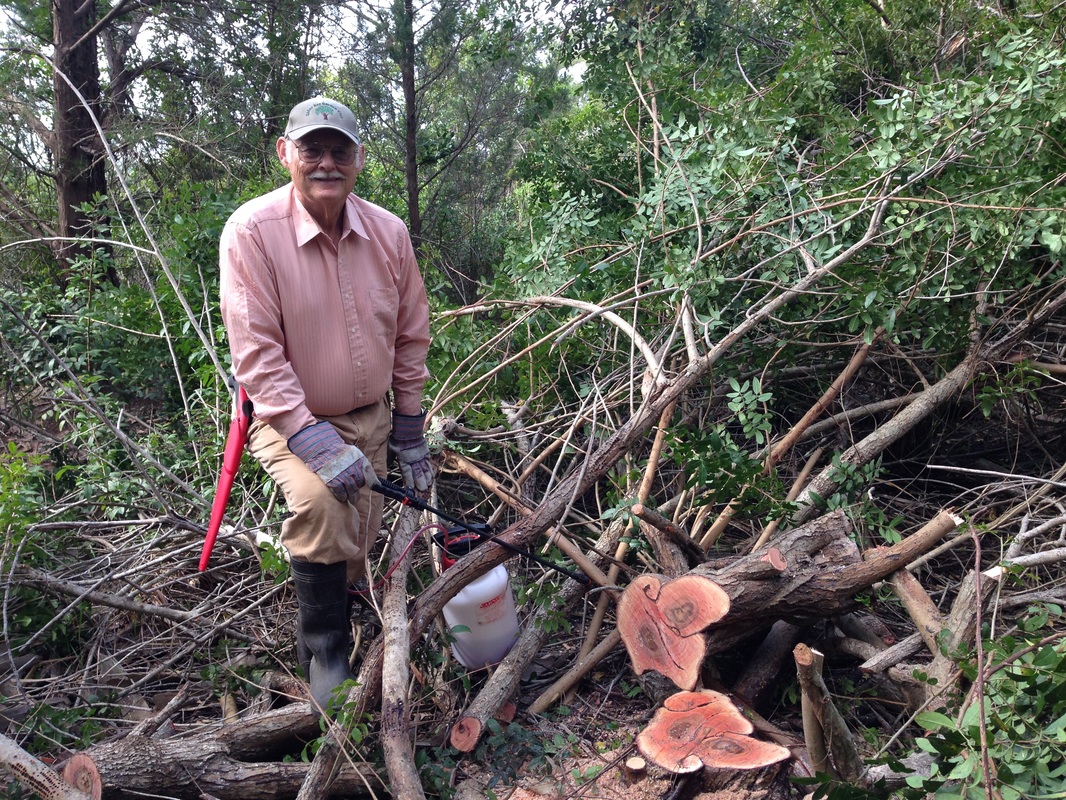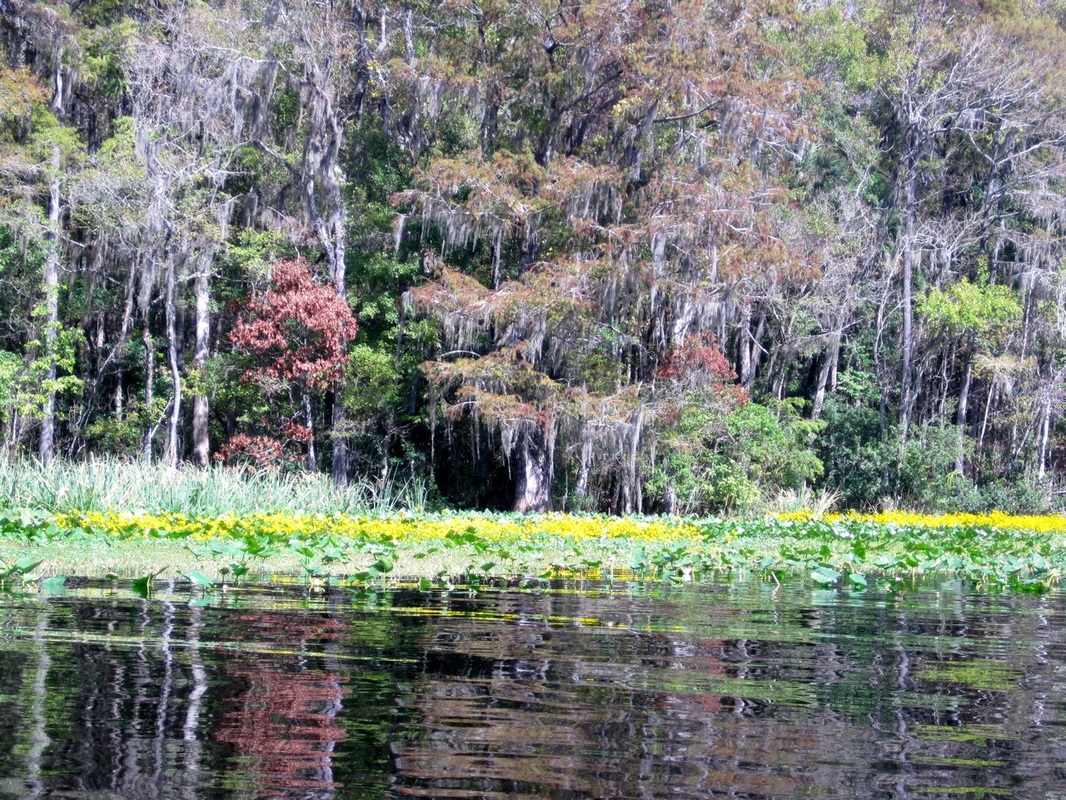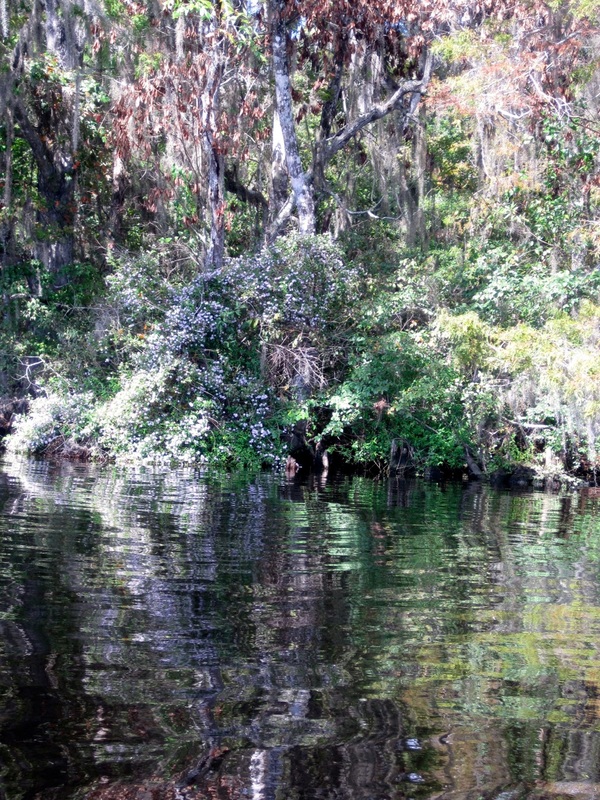0 Comments
There is a new reason to explore the Salt Creek spur road off the Dixie Mainline, a 1/3 mile loop trail has recently been cut and sign posted. The loop offers three vistas across the salt marsh, a fresh water marsh pond and several stately grand-daddy live oak trees. Furrows are apparent when you walk the trail. Daniel Barrand, Refuge Forester, says they are evidence of past timber planting. He also points out a higher windrow about half way around the trail that was made by raking and piling logging debris into a long row. He says the refuge once experimented by knocking down a windrow and found that many of the long-dormant native seeds sprouted. What was once an unwanted plant is welcome again. Daniel Barrand is pleased to see so much plant diversity as we walk the Salt Creek loop trail including native blueberry, persimmon, cedar and wire grass. While you are parked, visit the Salt Creek fishing/observation platform. Bald eagles often nest on the island across the creek from the platform.
Despite the stormy forecast on November 19, the Suwannee Waterways Cleanup only had light sprinkles- great weather to gather garbage. Folks often overlook trash while pleasure boating but when 18 kayak, canoe and power boat volunteers searched... they found 429 pounds! It is tricky to find a spot to disembark near Suwannee due to slippery mud banks but the litter payoff is huge when you walk the high-water line. The most unusual find was a message in a bottle. The Suwannee Community Center was filled with 34 guests who enjoyed a pot-luck meal featuring smoked chicken by Jerry Everett, owner of the Waterfront Market. After lunch, Tom McLaulin, from the Florida Paddling Trails Association, talked about Suwannee’s role as a Blueway Community. It is also a stop on the FPTA’s Circumnavigation Trail. The Friends of the Lower Suwannee and Cedar Keys Refuges ended the afternoon with their monthly board meeting. Four non-profit groups joined together during this event in one effort: The Suwannee Chamber of Commerce, The Friends of the Lower Suwannee and Cedar Keys Refuges, Florida Paddling Trails Association and Paddle Florida. For those interested in the Brazilian Pepper Control Program on the Refuge and in the Cedar Key area, on Dec. 8th at 9:00 a.m. we will meet at the CKLS Wildlife Refuge Headquarters off of CR347 for an informational presentation.
Following the presentation we will meet at 10:00 a.m. just North of #4 Bridge by the Andrews/Lukens Tract for the field demonstration and work for a couple hours. All safety, tools, and applications equipment will be provided including boots, gloves, and goggles. All interested parties are welcome to attend either or both activities. All help is greatly appreciated. For more information, contact Roger McDaniels at [email protected] This post was written by Jay Bushnell, former president of Friends.
Fall has always been a special time of year on the river for me. This year is different. The climbing asters with the unbelievable fragrance and the blankets of yellow flower nestled among the bonnets are still there to enjoy. However, notice the dark reddish brown leaves in these two pictures. These are dead Red Bay trees. It has been estimated that the Red Bay ambrosia beetle arrived in 2002 on pallets at ports near Savannah from somewhere in Asia. The beetle lays its eggs in the tree causing laurel wilt fungus which kills the tree. Do a web search and you will find ‘extinction’ associated with the Red Bay trees. If so, we are witnessing extinction first hand. This would be just another casualty of the globalization of world economies. As would be expected, other life forms are also affected. For example, the paradises swallow tail, Schaus and spicebush butterflies are dependent on the Red Bay. It would be an understatement to say that the beetle is spreading fast across the Southeastern US. It is not known what affect the beetle will have on other species. Nor does there seem to be a plan to combat the beetle. |
Archives
June 2024
|

Friends of the Lower Suwannee & Cedar Keys National Wildlife Refuges
P. O. Box 532 Cedar Key, FL 32625 [email protected] We are a 501(c)(3) nonprofit organization. |
|
